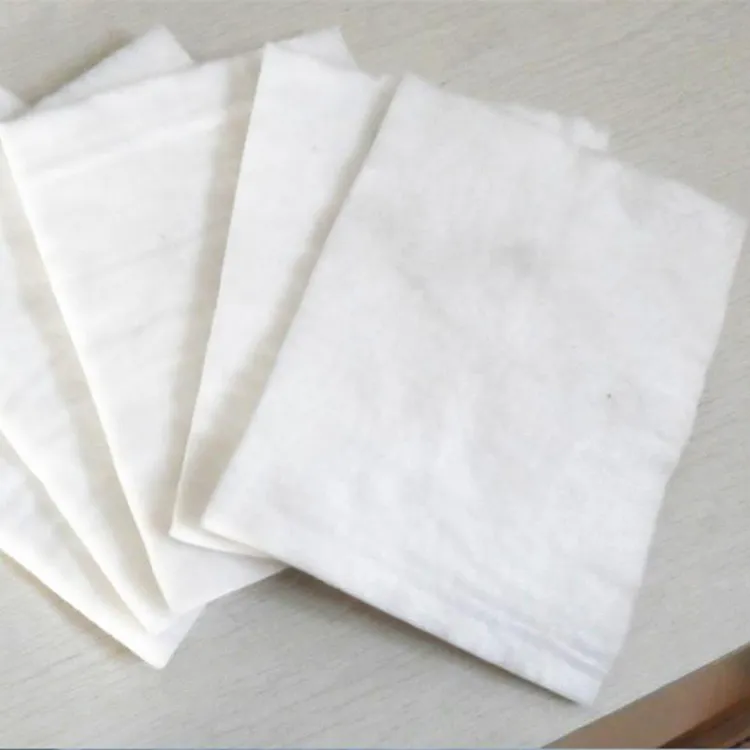Understanding the Basics of Industrial Filter Cloth: Types and Applications
2024-08-06
Industrial filter cloth is a critical component in various filtration processes across numerous industries. These cloths are designed to separate solids from liquids, ensuring the purity of the end product and the efficiency of the process. In this blog, we will explore the basics of industrial filter cloth, including its types, materials, and common applications.
What is Industrial Filter Cloth?

Industrial filter cloth is a woven fabric used in filtration systems to trap and remove particles from liquids or gases. These cloths are manufactured from different materials and are chosen based on the specific requirements of the filtration process, including the type of particles being filtered, the nature of the liquid or gas, and the operating conditions.
Types of Industrial Filter Cloth
1. Woven Filter Cloth
- Plain Weave: This is the most common type of woven filter cloth, characterized by a simple over-and-under weave pattern. It offers balanced strength and permeability.
- Twill Weave: Twill weave filter cloth has a diagonal pattern, providing higher strength and durability compared to plain weave. It is used in applications where robust filtration is needed.
- Satin Weave: This weave has long floats of yarn on the surface, giving it a smooth texture and reducing clogging. Satin weave cloth is ideal for fine filtration.
2. Non-Woven Filter Cloth
- Needle-Punched Felt: Made by entangling fibers with barbed needles, this type of filter cloth is thick and provides high dirt-holding capacity. It is commonly used in dust collection and liquid filtration.
- Melt-Blown Fabric: Produced by blowing molten polymer through fine nozzles, melt-blown fabric has a fine fiber structure and is used for microfiltration applications.
Materials Used in Industrial Filter Cloth
1. Polyester
- Properties: High strength, good chemical resistance, and low moisture absorption.
- Applications: Used in general filtration applications, including water treatment, food processing, and chemical filtration.
2. Polypropylene
- Properties: Excellent chemical resistance, low density, and hydrophobic nature.
- Applications: Ideal for filtration in the chemical industry, pharmaceuticals, and wastewater treatment.
3. Nylon
- Properties: High tensile strength, good abrasion resistance, and flexibility.
- Applications: Used in filtration of abrasive materials, mining operations, and sludge dewatering.
4. Cotton
- Properties: Natural fiber, biodegradable, and good absorbency.
- Applications: Suitable for filtration in the food and beverage industry, as well as in applications requiring biodegradable materials.
Common Applications of Industrial Filter Cloth
1. Water Treatment
- Municipal Water Treatment: Removing impurities from drinking water.
- Industrial Wastewater Treatment: Filtering contaminants from industrial effluents.
2. Chemical Processing
- Chemical Filtration: Removing particles from chemical solutions to ensure purity.
- Catalyst Recovery: Filtering catalysts from reaction mixtures for reuse.
3. Food and Beverage Industry
- Juice Filtration: Clarifying fruit juices by removing pulp and sediments.
- Edible Oil Filtration: Ensuring the purity of cooking oils by removing suspended solids.
4. Mining and Minerals
- Slurry Filtration: Separating valuable minerals from slurry mixtures.
- Tailings Management: Dewatering and managing mining waste.
5. Pharmaceuticals
- Sterile Filtration: Ensuring the sterility of pharmaceutical solutions.
- Active Ingredient Recovery: Filtering active pharmaceutical ingredients from production mixtures.
Conclusion
Industrial filter cloth plays a vital role in a wide range of filtration processes, ensuring the efficiency and effectiveness of various industrial operations. Understanding the different types of filter cloth, the materials they are made from, and their specific applications can help industries select the right filtration solution for their needs. By choosing the appropriate filter cloth, businesses can improve product quality, reduce operational costs, and enhance overall process performance.


